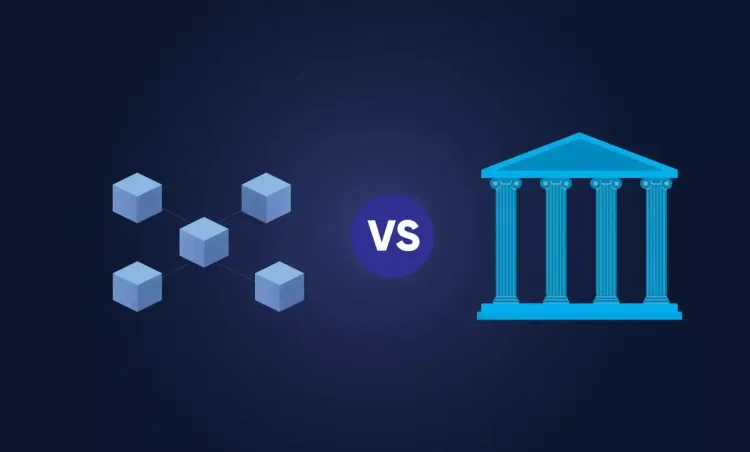Budgeting can seem boring or complicated. But it does not have to be. Imagine feeling empowered each morning by knowing where your money goes and your financial decisions. Imagine being able to plan for emergencies, vacations, or your dream home with confidence without having the stress of debt hanging above your head. Budgeting is a powerful tool for managing your finances. A solid budget is essential, whether you are trying to save money for a special occasion, pay down debts, or gain control of your spending. This is not about just numbers, but about creating freedom and opportunities in your financial life. Let's get started with a simple guide to help you on your journey towards financial clarity and confidence.
Understanding Personal Budgeting
Budgeting is essential to financial well-being. It allows you to make better decisions and understand how your money is spent each month. Budgeting is more than just tracking your expenses. It's also about prioritizing the things that are important to you. This can reveal patterns of spending that would otherwise be overlooked. A budget can be a lifesaver in the event of an emergency. It gives you peace of mind. It's easy to be caught off-guard by unexpected costs or bills without a budget. Budgeting also encourages accountability. Spending is encouraged to be more deliberate and less impulsive. You'll have more control over your finances if you become aware of them. Budgeting is essential for a healthy financial future and achieving goals such as homeownership or retirement.
Take Stock of Your Financial Situation
It's essential to get a good picture of your finances before you create a budget. Gather all of your financial documents. Included are bank statements, debts, and bills. Next, list your income sources. Be sure to include every dollar you receive each month. You will have a solid foundation to build on. Take stock of all your expenses. Sort them by fixed costs, such as rent or mortgage payment, and variable costs, like groceries or entertainment. Budgeting is only effective if you know where your money is going. Over time, you might be surprised by how much money small purchases can add up. Subtract liabilities from assets to calculate your net worth. This number helps to highlight areas that need attention and sets up future planning.
Set Realistic Goals
Budgeting is only effective when you set realistic goals. Your budget has direction and purpose when you have goals. It's easy for you to lose motivation if your objectives are unclear. Start by identifying your goals. You may want to pay off debt, save for a vacation, or build an emergency fund. Note these things down. SMART goals should be specific, measurable, achievable, relevant, and time-bound. Instead of saying that you want to save more money, try to put aside $200 per month for six consecutive months. Divide larger goals into smaller ones. You can then celebrate your progress and make them seem less intimidating. Flexibility is key. You may face unexpected expenses in life; changing your goals does not mean abandoning them.
Creating a Budget Plan
A budget plan will help you achieve financial stability. List all your sources of income. You'll have a better idea of your monthly income. The next step is to categorize all of your expenses. Prioritize your expenses by putting fixed costs first (such as rent and utilities), followed by variable costs such as groceries and entertainment. Do not forget to include your savings goals. After you have mapped out your finances and allocated specific amounts to each category, it's time to start implementing them. It's important to be realistic. You want to achieve balance without feeling restricted. Use budgeting apps or tools that make it easier to track and adjust your budget over time. Visual aids will help you to see how your money is spent, which makes it easier to stick with the plan. Revisit your budget plan regularly. Life changes can often necessitate adjustments. Maintain an open mind when it comes to changing priorities, but keep your long-term goals in focus.
Keep your Budget in Check: Tips and Tricks
It can be difficult to stick to your budget, but there are a few ways you can do it. Automate your savings. Set up direct deposit into an account for savings. You won't miss any money. Track every expenditure. You can use spreadsheets or apps to track your spending. Controlling your spending habits starts with awareness. Never underestimate the power of small rewards. You deserve a reward for staying within your budget. Budgeting becomes less of a chore and keeps your motivation up. Join online groups that focus on budgeting. Sharing tips and experiences with others encourages accountability and motivation. Revisit your budget regularly. Your financial plan should change as your life changes. You can adjust as necessary without feeling defeated or guilty. It's all part of the process.
Tracking Your Budget and Making Adjustments
It's like having a pulse of your finances. This helps you to see where your money is going and identify patterns in your spending. Monitor your expenses using apps or spreadsheets. You can then quickly identify areas where you are overspending. Little awareness goes a long way. It's not a failure to adjust your budget; it is part of the process. Unexpected expenses can arise, and your income may fluctuate. If something isn't working, try tweaking it. Perhaps dining out is more expensive than expected or gas prices have risen unexpectedly. If possible, review your budget monthly. Celebrate successes and learn without judgement from setbacks. Budgets should be a reflection of real life, not just numbers on paper. They are a tool to support financial health as it evolves.
Personal Budgeting has Long-term Benefits
Personal budgeting is the key to financial freedom. You can make more informed decisions about your saving and spending habits. You can create an emergency fund with a budget. This cushion can provide peace of mind in unexpected situations, such as job loss or medical emergencies. Personal budgeting also promotes better awareness of spending. You will learn to recognize patterns that can lead to excessive spending and how to redirect funds to more important goals. Good budgeting habits will eventually improve your credit score. Your overall financial health will improve if you pay your bills on time, manage debts well, and pay them off. It becomes easier to invest. With consistent savings habits, you'll have the means to explore investment opportunities—whether it's stocks, real estate, or retirement accounts—which can generate wealth over the long haul. This commitment will not only lead to financial stability but also set you up for long-term goals like home ownership and travel.
Conclusion
Budgeting is not just about money; it's also a way of life. This practice will give you more control over your finances and life. Flexibility is essential as you navigate your financial journey. As circumstances change, adjust your budget. Your approach to managing your finances should reflect the unpredictable nature of life. Your efforts now will pay off in the future. It is impossible to overstate the peace of mind you get from knowing exactly where your money goes. Celebrate your small wins along the way. Each month that is successful builds confidence and reinforces positive habits. Budgeting allows you to make more informed decisions regarding your spending and savings. It allows you to explore opportunities that are aligned with your values.




